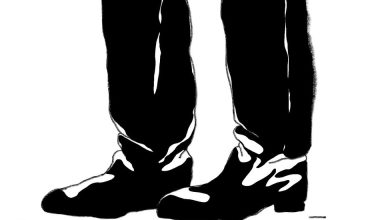On bell hooks and the Solace of Ritual

This holiday season is off to a rocky start. A notable public loss is affecting me personally. bell hooks, who died last week, was an acclaimed philosopher, writer and cultural critic whose work expanded our culture’s working definition of feminism and, by extension, of humanity.
In 2017, when I was writing my first collection of essays, “Thick,” the challenge intimidated me. I was a junior academic in a profession where junior status very much dictates how one is supposed to present oneself. According to those professional norms, it was too soon for me to write literary nonfiction for a general audience. I was also a Black woman not to the academic manner born. There were very few models for the kind of work I felt compelled to do in the world. My thoughts felt urgent, and our times felt urgent, and I needed to write, urgently. I was not afraid, but I was not certain of how to do my work to my personal standards in a conservative profession that dings you for being too accessible.
As I was writing the first essay, a piece on racism and beauty standards that is one of the book’s most theoretical essays, I turned to bell hooks’s classic book “Art on My Mind.” With her words in my mind, I wrote as she did: authentically and without flinching. I ended up opening the essay with an epigraph from her book. Though the essay appeared in the middle of “Thick,” for me, it opened up the book.
Writing “Thick” changed my life, and it started because I turned to bell hooks’s work for guidance. It is something I still do. I had only recently pulled several of her books from various shelves in my home because I am writing a new book. I am meditating on the role of memory and testimony, and like any believer, I wanted to revisit the scriptures to get me going. For me, bell hooks wrote the scriptures for brave thinking and existing.
I am also dealing with a personal loss. My biological father recently re-entered my life, and we also recently learned that he has late-stage kidney failure. It is a medical fate that visits Black men too often. This stage of kidney disease is especially gruesome because I know the data on race and kidney donation. African Americans are more likely to experience kidney disease than white Americans and are less likely to receive transplants. Even if we are fortunate enough to match with a donor, the roadblocks to getting the kidney are immense. Proof that you can pay. Health screenings that do not account for racial differences in health. Health care apathy. It feels like a personal insult to me, against my family, that we would reunite as mortality pulls up a chair to our front porch.
The holidays are generally a good time to seek out rituals. Rituals can ground us and renew us. This holiday season, I feel the need for grounding and renewal more presently than I have in many years. Life is cyclical. I know that every season must end and we can never know the texture of the endings in store for us. Knowing that does not make it any easier. But I am trying.
If you are spending your holidays alone because Covid surges have canceled your plans, you are not the only one. It is tempting to cancel the whole idea of the holidays just because we cannot celebrate them the way that we intended. The other option is to revel in the lowest-hanging holiday fruits: Christmas movies, pop music and food.
Five years ago, Hallmark Christmas movies were the only show in town. The genre has become such an advertising boon that many other cable network now offers its own brand of Christmas movie. Netflix entered the mix a few years ago, and this year it released the genre’s Platonic ideal: “Single All the Way.” The love interests are gay. The supporting cast is full of good actors turning in good performances. The script is formulaic in the way you want a Christmas movie to be without being stereotypical in the way the genre can be, especially when the cast is not all white or straight. And there is a dance number. What more could you want at Christmas? Some reviewers have panned this movie, making the common mistake of judging a Christmas movie by the conventions of cinema. We’re not looking for cinema when we watch these kinds of movies; we’re looking for comfort. This movie has that without the compulsory heterosexuality that weighs down most movies in this very niche category.
Christmas music is a hard genre. The challenge is making music that is both sentimental and good musically. You end up with either a new American songbook classic or a Chipmunks album. There is no in between. Infinity Song has managed to live up to the challenge with its fun, modern Christmas album, “Infinite Christmas.” Infinity Song is a self-described “sibling band” of great musicians, and this album is a solid entry in the category of Christmas music you can listen to even if you hate Christmas music. The group is also just a joy to listen to and watch. Its new video for the album’s first single, “Christmas Baby,” is a charming visual story of young love over a 1980s pop-soul riff.
And finally, the utterly charming Sohla El-Waylly has a gingerbread cookie recipe that is fun to cook and eat. (You can also watch her participate in this delightful gingerbread challenge on NYT Cooking’s YouTube page.) My colleague Jamelle Bouie also always has a recipe idea in his newsletter. We’ll take next week off for New Year’s festivities, and I’ll see you in 2022.
Tressie McMillan Cottom (@tressiemcphd) is an associate professor at the University of North Carolina at Chapel Hill School of Information and Library Science, the author of “Thick: And Other Essays” and a 2020 MacArthur fellow.




